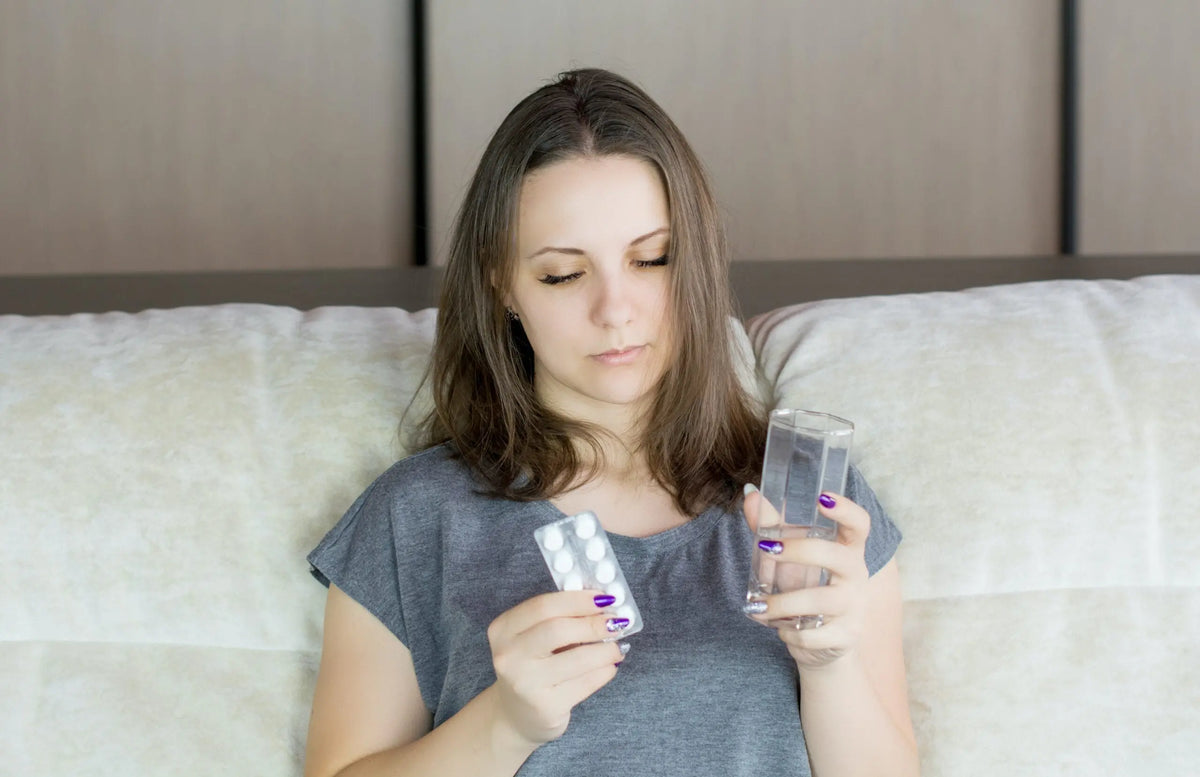
Got a Headache? Here’s How to Sleep Better and Improve It
|
Time to read 3 min
This store requires javascript to be enabled for some features to work correctly.
Written by: Bethany Gemmell
|
Time to read 3 min
A headache and sleep have a complicated relationship. Getting a few hours rest is not necessarily a quick fix. Headaches can be caused by lack of sleep through tiredness and fatigue. At the same time, oversleeping can cause further pain. Sleeping for a few hours may make you dehydrated or overheated, causing the pain to feel worse. At the same time, those prone to migraines may have to put themselves to bed quickly to recover. This causes problems in keeping a consistent sleep schedule.
Our guide to sleep and headaches offers solutions no matter your sleep-headache relationship. Sleep problems and headaches can be a chicken-and-the-egg issue - it can be difficult to know which comes first. Sleep and headaches can aggravate one another in a cycle. Once you know the root cause of the problem, it becomes much easier to resolve.
When it comes to the pain of a migraine, there's nothing to do other than lean into it and get to bed. Migraines are too debilitating to carry on as normal. The Migraine Trust recognises sleep and migraines as a cycle that can worsen each other. Lack of sleep can cause migraines to come along. At the same time, a common symptom of a migraine is excessive sleepiness. This can cause more frequent migraines in the long run.
The Trust recommends a technique known as good sleep hygiene. Good sleep hygiene involves going to bed at the same time every day as consistently as possible. When migraines throw your sleep cycle out of schedule, having a regular bedtime can help you keep on track.
Keeping good sleep hygiene involves knowing what prompts you to fall asleep - and what prompts you awake. This means keeping track of what stimulates and relaxes you before bedtime. For extra advice on working with the clock for your sleep, see our guide to keeping consistent when the clocks change. The guide identifies pre-sleep activities that can help or hinder our ability to fall asleep.
Waking up after a few hours of rest should make us feel more energetic and ready to face the day. Unfortunately, this is not always the case. Waking up with a headache is a common health issue. 13% of the population regularly wake up to a headache, with the majority of snorers facing this problem regularly.
Bruxism, more commonly known as teeth grinding, is a common problem that many people don't know about. This is because many people grind their teeth in their sleep without even realising they do it. This can cause you to wake up with headaches. There are ways, however, to identify if you do this. Those who grind often have tension and pain in their jaw. This can be relieved through acupressure massages and lead to pain relief from headaches. To check and prevent long term damage to your teeth, ask your dentist to see if they can find signs of grinding.
Watching what you drink is important. Be sure to make sure you are not drinking too much caffeine or alcohol right before bed. Instead, make sure you drink plenty of water before sleeping for many hours to avoid waking up dehydrated. Drinking water after waking up is also a good habit that will prevent headaches recurring.
Your mental health also plays a huge factor. Thinking worrying or depressing thoughts will make you stay up longer or have a lighter sleep. This will cause you to wake up feeling drained due to lack of quality, REM sleep. This can cause headaches. Our guide to bedtime anxiety offers advice for clearing your head before bed and will help bring deep sleep forward.
The answer to this is yes and no. It depends on how naps work for you usually. If you find that naps cause you to stay awake at night and lose sleep at bedtime, you should avoid them. This sleep deprivation and infrequent routine will only prolong the problem of headaches. if naps make you feel refreshed and don't interrupt your routine too much, then feel free to go ahead and get some sleep.
However, for more severe headaches where you cannot function normally for everyday activity, naps could work for you. A study has found that 81% of participants found a nap to be their most effective method for curing headaches.
This is also true for migraines, which tend to be the most severe type of headache. Migraines most commonly occur between 4am-9am, prompting some people to wake up. Getting a nap in during the day may allow you to catch up on the recommended 7-9 hours of sleep required for the day, and prevent further tiredness creating more headaches.
Receive 10% off your first order when you subscribe to our newsletter





